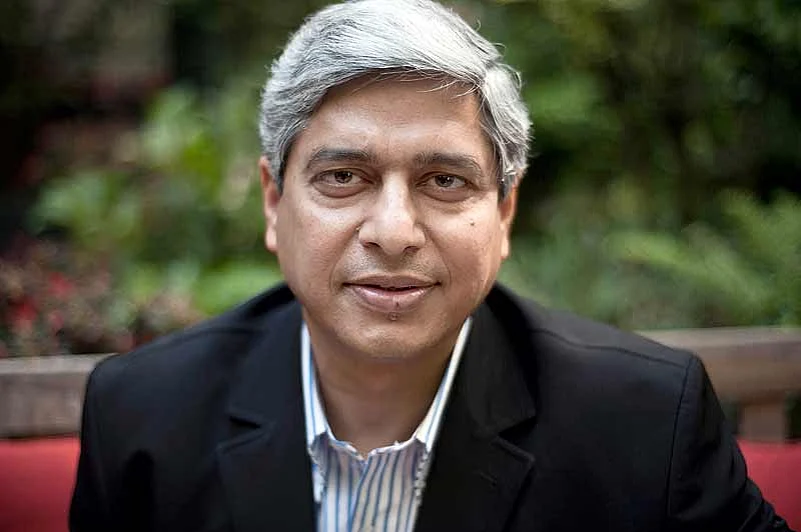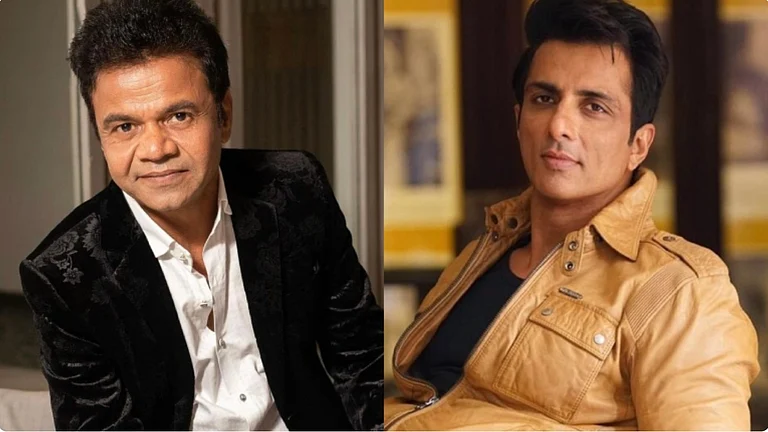‘In life you never get what you deserve: you get what you negotiate’. That line would be enough to get the whole of new India lunging for Vikas Swarup’s latest. We live in a world of negotiation—children negotiating for TV watching rights, not to mention people negotiating for salaries, hostage negotiations and all the other kinds that have made ‘negotiation’ a buzzword. But then, Vikas Swarup specialises in what I tend to think of as the conceptual novel: a fast-moving page-turner which is idea-based and therefore turns into an allegory of sorts, making it ideal for a world which believes in self-help books and Paulo Coelho.
Swarup gets straight to it with his premise stated right at the beginning: Sapna Sinha’s life changes because of a chance encounter in a temple. Sapna is offered a chance to become a CEO by a man looking for his successor, provided she pass his somewhat strange recruitment dictates. Coming from a middle-class background and being thrust into the position of family bread-earner after the death of her father and suicide of her sister Alka, Sapna is suspicious, and determined not to stick her neck out. But fate puts her into a position where she is forced to give in. From then on follows a series of tests—seven actually, that magical number of fairy tales and morality stories, with the last the most difficult—that should prove or disprove the theory.
If you’re a cynical reader, you will expect her to fly through the tests, compulsively turning the pages to see what happens next. During the course of it all, Swarup guides us through Anna Hazare’s India, a country where reality shows, auditions and khap panchayats are a reality of life, even amongst IT-savvy young people. And where media hype with a Bollywood star thrown in can make a brand out of a very ordinary person overnight. Of course, Swarup is not really allowing all this time to make a point, just filling in atmosphere. This eye for trends, however, is much in keeping with the way he fixed on the Kaun Banega Crorepati phenomenon for Q&A.
Both Q&A and The Accidental Apprentice are written in the first person, and both focus on an allegory, but that is where the similarity ends. Sapna comes from a different background, so getting inside her head must have been difficult for Vikas Swarup because you wonder, for example, how she would recognise a high-class hooker when she sees one—as in her partial description of Mr Acharya’s blonde secretary. Of course, the fact that Sapna is a woman and a first class English Honours graduate makes it possible for Swarup to hold up the novel with various moral musings that add to the allegorical quality of The Accidental Apprentice. And she is realistic enough not to fall for the first brilliant offer that comes her way, unlike her sister Neha, who is determined like most of young India to get her five minutes of fame on a TV screen somewhere. Sapna is unmoved by the media and what it represents, though she knows enough to make use of it when it suits her.
Swarup loves sketching details about people in a few broad strokes, like the contestants in a pop reality show, or the Gandhian Nirmala Ben—a Bengali married to a Gujarati, though she could have managed equally well without the Bengali touch—whose kleptomania turns out to be a good red herring in the end. Many of those details are in fact used to contribute to the ending, though not all of them are equally effective.
I must confess that it was fun trying to second-guess the author while flipping through the pages. However, the end was totally unexpected, and perhaps I could have done with more of it and less of the test matter, interesting though that is. Swarup’s timing, which is impeccable throughout, slows down to a crawl to allow Sapna to take in various unexpected pieces of information until the solution comes out of a hat with a deus ex machina effect.
In the end, the moral of the story is something quite different from what you imagined it to be at the beginning. But then, life-changing events have a right to make you wiser, don’t they?


























